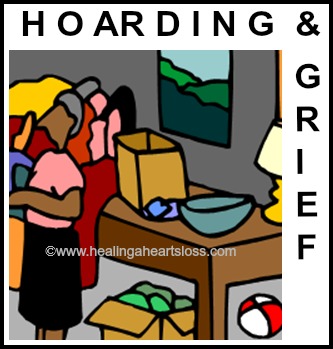Hoarding is more prominent with the presence of TV shows depicting individuals of all walks of life involved in this. By looking deeper into this situation, you will understand how emotional losses and, in some cases, trauma go hand in hand with hoarding and how the hoarder is not the only one affected by their action.
I want to mention that seeing hoarding as a “problem” may be from an observer’s perspective and not the actual understanding from the hoarder’s point of view. I am not coming from a professional psychological stand point, but I have had experience with trying to be supportive of a person who “collects” a lot of things. The stuff comes into the home and never leaves.
Ramifications of hoarding can depend on factors such as the degree of cleanliness, safety and emotional well-being of the hoarder. As the hoarding problem increases other cause and effect scenarios dealing with family and friends may appear.
Clutter, messiness, filth and smells can start to accumulate creating an environment where family and friends no longer want to visit; which can gradually lead to isolation for the hoarder and those living this way. Prolonged hoarding and increased isolation can create loss scenarios where feelings and emotions of grief begin to appear.
For the hoarder, emotions such as sadness, loneliness, despair, yearning, depression, anger, being overwhelmed and not understanding why family and friends no longer come to visit can wreak havoc on their emotional, mental, physical and spiritual well-being.
I remember being told that “…maybe, I do not want visitors to come and see me.” Perhaps, this is true for some people, but I think this person was embarrassed by the extent their life had become controlled and out of control by their “stuff”. Emotionally, some hoarders cannot handle anyone touching or trying to remove items from their space. Often there is a physical reaction such as a panic attack if someone attempts to take something out of the house.
For family and friends, the decision to not visit the hoarder may be difficult. Judgment, lack of understanding the root cause of the hoarding problem, not caring and perhaps unable to do anything to help the hoarder leaves family and friends with few options and many decide to stay away.
When family and friends make the decision to stay away, they may experience their own grief scenarios. Sadness and wishing life were different for themselves and their loved one. Endings may occur where the relationships are severed, contact lessens and life goes on differently.
You cannot force someone to change. Professional help may be necessary. The hoarder became this way for reasons we may not understand. Can you love them anyway?
“Clutter is stuck energy.
The word “clutter” derives from the Middle English word “clotter,”
which means to coagulate –
and that’s about as stuck as you can get.”
By Karen Kingston
All my best,
Barbara Gillett Saunders
Grief Counsellor/Thanatologist

